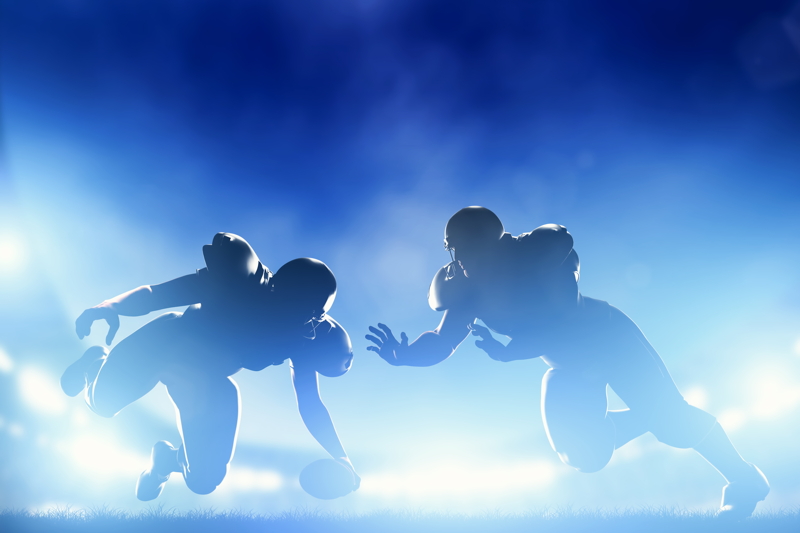Signs and Symptoms of Concussion
There has been a great deal of media attention recently regarding sports-related head trauma, lawsuits and settlements for injured athletes. Take the NFL’s concussion crisis for instance; brain injuries, dementia and suicide in retired NFL players has led to much scrutiny into the role concussions play in all of this.

Now the NFL faces some uneasy questions about how the sport may cause lasting harm to its players. Scientific research increasingly suggests that football can lead to a wide range of long-term brain conditions. Even high school and college-level football have had their fair share of players who have been affected by closed head trauma, concussion and traumatic brain injury (TBI) while playing the sport.
However, this crisis is not reserved for football alone. Studies also show mixed martial arts (MMA) — which includes wrestling, boxing, kickboxing and judo moves inside an enclosed area where fighters wear small, fingerless gloves and no headgear — and boxing carry as much risk if not more for head trauma. In these sports athletes often sustain repeated blows to the head which have serious effects on brain health causing long-term or permanent brain damage. The National Hockey League (NHL), has also faced concussion lawsuits by players and retired players alike. Even soccer is now facing a concussion crisis of their own. Aside from athletes, anyone can be subjected to traumatic brain injury due to accidents that may occur when least expected.
Concussion and Traumatic Brain Injury (TBI)
Concussions are a type of traumatic brain injury—or TBI. A concussion may be caused by a blow or jolt to the head or when the head and upper body are shaken. This movement can cause the brain to bounce around or twist in the skull, stretching and damaging the brain cells and creating chemical changes in the brain. Concussions are unfortunately a common occurrence in sports, however concussions can happen outside of sports and should be taken seriously. Oftentimes there are no visible signs of a brain injury like cuts or bruises, and therefore it can easily go undiagnosed.
Common Misconceptions of Concussions
Traumatic brain injury awareness is critical in order to understand the risks, signs, symptoms and dispel the misconceptions that exist. Many believe that a minor impact cannot cause a concussion but it can. Mild and moderate traumatic brain injuries (TBI) are not always caused by a serious impact or blunt trauma. Even moderate TBIs can include mild concussions. It is sometimes very difficult to identify the severity of a head injury and often times closed head trauma goes undiagnosed, later triggering long-term symptoms and conditions.
People that are involved in car accidents sometimes feel that everything is fine, but may not develop symptoms or realize until much later that you have sustained a concussion. A lot of people do not suspect they have been seriously injured and therefore never seek diagnosis or treatment.
The other common mistake in trying to recognize a concussion is that people fail to realize is that a concussion does not always involve being “knocked out,” or a loss of consciousness. It is another common belief that these two things occur together. Most concussion sufferers never lose consciousness and that’s why many are not given immediate medical attention.
Another common belief is that symptoms of a head injury will cease after some rest. However one head injury could heal in a few days and another may last several months or longer. Unlike a broken bone where trauma to the body is obvious, head trauma can sometimes be less obvious or discrete. Even though any injury may not be apparent, people around the injured individual may notice behavioral differences as the person shows mental symptoms, such as chronic forgetfulness, atypical irresponsibility, mood changes or problems carrying on a conversation. If you are constantly losing things or forgetting routine tasks, names or facts, there is a good chance the accident caused at least a mild brain injury. Be informed about concussions/TBI. Contact a doctor right away for needed medical attention and information. Every patient is different.
How to Recognize a Concussion/TBI – Possible Signs and Symptoms
There are various signs and symptoms that can present themselves either immediately or days and possibly months after an injury occurs. Here are some of them:
Possible Observable Signs
- Can’t recall events prior to or after a hit or fall
- Appears dazed or stunned
- Forgets an instruction, is confused and unsure of the game, score, or opponent
- Moves clumsily
- Answers questions slowly
- Loses consciousness (even briefly)
- Shows mood, behavior, or personality changes
Symptoms Often Reported by Persons with Concussion/TBI
- Headache or “pressure” in head
- Nausea or vomiting
- Balance problems or dizziness
- Double or blurred vision
- Sensitivity to light or noise
- Sensation of feeling tired and sluggish
- Concentration or memory problems
- Confusion
- Not “feeling right” or “feeling down”
- Mood changes, such as irritability, sadness, nervousness, anxiety, or acting more emotional than normal
- Changes in sleep patterns
Contact your healthcare professional right away if you or someone you know has a head injury.
Although most people who have suffered a concussion make a good recovery, for others, the effects of brain injury can last weeks, months, or longer. That is why the choices we make immediately following a concussion can decide life or death or whether the injured person will have a full recovery without complications.



